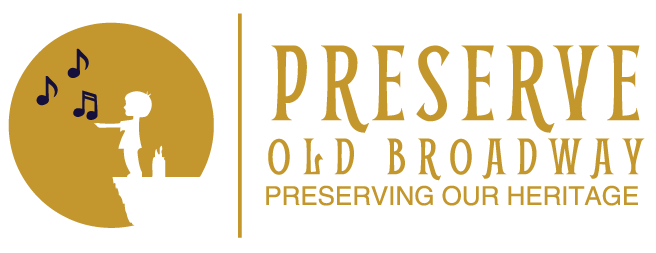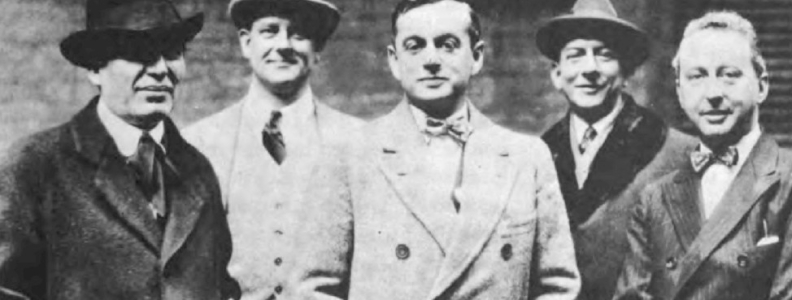The Second Bolton-Wodehouse-Kern Collaboration–Oh, Boy!
As we mentioned on Friday, Jerome Kern and Guy Bolton enjoyed their first critical success in April 1915 with the musical comedy, Nobody Home. Their second outing, Very Good Eddie, opened in December 1915 and was a much bigger success, running for 341 performances. However, Bolton and Kern thought that the lyrics were weak and brought in P.G. Wodehouse to help them with their next show.
The three men became a wonderful but temporary team (“B-W-K”), creating a number of memorable shows, including Have a Heart, Oh, Boy!, Leave It to Jane and Oh, Lady! Lady!
And then, quite inexplicably, they went their separate ways.
We have looked at the glorious score from Have a Heart, and wondered why it did not fare better at the box office. Gerald Bordman, the author of American Musical Theatre, A Chronicle, pondered the same question: “Considering the number of favorable reviews Have a Heart received, its poor showing is a puzzle. Perhaps some confusion was created by using for its title the title of the still new and popular song from the Follies. Whatever the reason, failure and obscurity were undeserved.”
Have a Heart established how the team would work: Bolton and Wodehouse would collaborate on the book, Wodehouse would write the lyrics and Kern would compose the score. Bordman notes that ‘The plot was frivolous, but frivolity was a musical comedy tradition, and, in the worrisome days of 1917 [WWI], not unwelcome. Besides, in the hands of Bolton and Wodehouse the frivolity was literate and witty.”
I am not sure that the book retains its freshness today, because the plot is trite. The story revolves around a married couple who are on the verge of divorce but then decide to give their marriage another try. They run away to enjoy a second honeymoon when “another woman” appears and threatens the marriage. Remember this is a comedy, so all ends well as the curtain falls on Act Two.
Jack Viertel wrote about these types of comedies in his book, The Secret Life of the American Musical. Going from “grandly ridiculous, wonderfully melodic spectaculars” known as operettas, he noted: “The ‘modern’ musical comedies of Rodgers and Hart, the Gershwins, and Cole Porter used the emerging sounds of the Jazz Age to domesticate things. Suddenly couples were succumbing at Long Island garden parties and on college campuses.”
I would include the shows of B-W-K in the list provided by Viertel.
The second show by B-W-K opened on February 20, 1917; it was called Oh,Boy! The show had another excellent Kern score, with a “thin” plot based on secrets, mistaken identities and cover-ups. But the reviews were excellent. The Times called it “as good as they make them if it were not palpably much better.” And the Sun said “If there be such things as masterpieces of musical comedy, one reached the Princess last night.”
Yet, with all of this adulation, there have been no revivals, no studio cast recordings, no restorations. Curious.
We have had difficulty finding clips of the music; but, starting tomorrow, we will present a series of the songs that we have been able to find.

